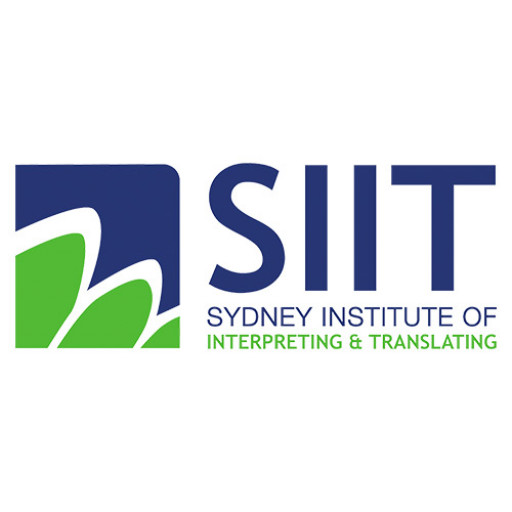The Bachelor of Interpreting and Translation at Western Sydney University is a comprehensive undergraduate program designed to equip students with essential skills in language interpretation and translation across diverse contexts. This degree prepares graduates to work effectively in multilingual environments, supporting communication in sectors such as healthcare, legal, business, government, and community services. Throughout the course, students develop advanced proficiency in at least two languages, including their native language and a target language, complemented by a deep understanding of cultural nuances, ethical considerations, and professional standards inherent to interpreting and translating roles. The program offers a blend of theoretical knowledge and practical experience, including workshops, simulated interpreting scenarios, and real-world internships to ensure graduates are job-ready. Students will learn various interpreting modes, such as consecutive, simultaneous, and sight translation, as well as specialized translation skills for documents, multimedia, and digital content. Emphasizing contemporary challenges, the curriculum also introduces technological tools and software used in the industry, preparing students to adapt to evolving language services landscapes. The program fosters critical thinking, intercultural competence, and communication skills, enabling graduates to operate confidently across different cultural contexts. With access to experienced academic staff and industry connections, students gain valuable networking opportunities and insights into professional practices. Upon completion, graduates are empowered to pursue careers as professional interpreters, translators, language consultants, or to continue their studies in specialized postgraduate programs. The Bachelor of Interpreting and Translation reflects Western Sydney University's commitment to excellence in language education and its dedication to preparing culturally competent professionals for a globalized world.
The Bachelor of Arts in Interpreting and Translation at Western Sydney University is a comprehensive program designed to equip students with the linguistic skills, cultural understanding, and professional competencies required for a successful career in the language services industry. This degree provides a strong foundation in both theoretical and practical aspects of translation and interpreting across a variety of contexts, including legal, medical, diplomatic, business, and community settings. Students will develop advanced proficiency in at least two languages, typically including English and another language of their choice, enabling them to facilitate effective communication between speakers of different linguistic backgrounds. The program emphasizes the importance of cultural sensitivity, ethical considerations, and professional standards in translating and interpreting, preparing students to operate ethically and effectively in diverse environments.
Throughout the course, students engage in rigorous language training, gaining expertise in translation techniques, consecutive and simultaneous interpreting, and the use of cutting-edge technology and software tools relevant to the industry. The curriculum is designed to foster critical thinking, problem-solving skills, and adaptability, allowing graduates to meet the dynamic needs of the globalized world. Practical experience is integrated into the program through internships, industry placements, and simulated interpreting exercises, providing real-world exposure and networking opportunities within the translation community.
Students will also learn about the legal, social, and political contexts in which translation and interpreting occur, ensuring they are well-prepared to navigate complex situations professionally. The program emphasizes continuous professional development, with courses designed to keep students updated on emerging trends, standards, and technological advancements in the field. Upon graduation, students are equipped with a portfolio of work and the confidence to pursue careers as professional interpreters, translators, language consultants, or further postgraduate studies. The Bachelor of Arts in Interpreting and Translation at Western Sydney University is dedicated to fostering skilled, ethical, and adaptable language professionals ready to serve diverse global communities.
Program Requirements for Bachelor of Science in Interpreting and Translation at Western Sydney University:
Applicants must have completed Australian Year 12 (or overseas equivalent) with a minimum Australian Tertiary Admissions Rank (ATAR) of 70. Alternatively, applicants may demonstrate equivalent academic achievement through recognized post-secondary qualifications or relevant work experience. Proof of proficiency in English is required for international applicants, typically an IELTS score of at least 6.5 overall, with no band less than 6.0, or equivalent results in other accepted English language tests such as TOEFL or PTE Academic.
Students are expected to have an aptitude for languages, including proficiency in at least two languages other than English, which will be assessed during the admissions process. Prior experience in communication, linguistics, or cultural studies is beneficial but not mandatory.
To complete this program successfully, students must undertake a combination of core and elective courses totaling a specified number of credit points. The core curriculum includes foundational courses in interpreting and translation theory, ethics and professionalism, cross-cultural communication, and specialized fields such as legal, medical, and community interpreting. Practical training is an essential component, involving simulated interpreting exercises, internship placements, and industry projects to develop real-world skills.
Additionally, students must pass language proficiency assessments and demonstrate the ability to interpret spoken and written texts accurately across their selected languages. The program also emphasizes the development of soft skills such as active listening, intercultural competence, and digital literacy in translation technologies.
Students are required to maintain academic standards throughout their studies, including passing all core modules with a minimum grade point average (GPA) as specified by the university. Successful graduates will have met the accreditation standards set by relevant professional bodies, preparing them for employment in government, healthcare, legal, and private sectors.
International students should also comply with visa requirements and may need to complete an orientation program covering university policies, academic expectations, and student support services. Additional prerequisites may include specific courses in introductory linguistics or previous experience with language learning.
In summary, admission to the Bachelor of Science in Interpreting and Translation necessitates a strong academic background in both languages and communication skills, proficiency in English, and an interest in cross-cultural communication, all of which are assessed based on university policies and standards.
The Western Sydney University offers various financial assistance options for students enrolled in their interpreting and translation programs. Domestic students have access to Commonwealth Supported Places (CSP), which significantly reduces tuition fees as the Australian government subsidizes a portion of the cost. Eligibility requirements for CSP include Australian or New Zealand citizenship, permanent residency status, or humanitarian visas, along with meeting the academic admission criteria. Additionally, students can apply for a range of scholarships aimed at supporting students in language studies, including merit-based and equity-based scholarships, which can help offset the costs associated with tuition, textbooks, and other study-related expenses.
For those who do not qualify for CSP, full-fee-paying options are available, and students are responsible for paying the entire tuition fee upfront or via payment plans offered by the university. Western Sydney University may also provide tuition payment schemes that allow students to spread payments over the semester or year, easing financial burden.
International students enrolled in interpreting and translation programs are generally required to pay full international tuition fees, which are set annually and vary depending on the specific program. International students can also explore scholarships targeted specifically at international students, such as international student scholarships that offer partial fee reductions.
Students may access government loan programs such as the Australian Commonwealth Low Income Supplement or other short-term financial aid options, depending on eligibility. In addition, Western Sydney University provides access to external financial aid resources, including private scholarships, community grants, and student loan programs approved by the government.
Many students also pursue part-time employment during their studies, facilitated by the university’s career services which connect students with part-time, casual, or internship opportunities. These employment options can help cover living expenses and additional costs related to the degree.
Given the variable costs associated with study, students are encouraged to budget carefully and explore all available financial options early in their academic planning. The university’s financial advisory services are available to assist students in understanding their options and navigating the application processes for financial aid and scholarships.
Western Sydney University offers a comprehensive program in Interpreting and Translation designed to equip students with the skills necessary to work as professional interpreters and translators in a variety of settings. The program provides training in both community and conference interpreting, as well as translation across multiple languages. It emphasizes developing high-level language proficiency, cultural competency, and industry-specific knowledge to prepare graduates for careers in multicultural environments, government agencies, legal settings, and private sectors. The curriculum integrates practical workshops, simulated interpreting scenarios, and coursework on ethics, professional practice, and technological tools used in the language services industry. Students have access to modern interpreting labs and translation technology, enabling hands-on learning that aligns with industry standards. The program may be structured as a bachelor’s degree, often combining theoretical studies with practical experience to ensure graduate readiness. Upon completion, students should be capable of performing accurate and ethical translations and interpretations, understanding intercultural communication nuances, and managing the professional responsibilities associated with language services. The program is typically delivered in English and may include language-specific courses. Graduates often pursue careers as community interpreters, conference interpreters, translation specialists, localization experts, and language consultants. The program’s accreditation and recognition are aligned with industry standards, ensuring graduates meet professional expectations. Students are encouraged to participate in internships, language exchanges, and industry placements to enhance their employability. Ongoing developments in technology and communication make the field dynamic, with the program preparing students for continuous learning and adaptation in the translation and interpreting professions.




